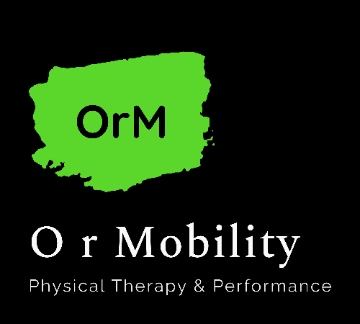Introduction
Neck pain is a common ailment that affects millions of people worldwide. Whether it is caused by poor posture, muscle tension, whiplash, or degenerative conditions, neck pain can be a debilitating and distressing experience. Living with chronic neck pain can severely impact daily activities, hinder productivity, and reduce overall quality of life. Fortunately, Physical Therapy (PT) has proven to be a valuable and effective approach in managing and alleviating neck pain. In this comprehensive blog post, we will explore the numerous benefits of Physical Therapy for neck pain, emphasizing how it targets the root causes, promotes pain relief, improves function, and empowers individuals to lead a pain-free and fulfilling life.
Understanding Neck Pain and its Causes
The neck, also known as the cervical spine, is a delicate and intricate structure that supports the head and allows for a wide range of movements. However, due to its flexibility and constant usage, it is susceptible to various factors that can lead to pain and discomfort:
- Poor Posture: Prolonged periods of slouching or holding the head in an awkward position can strain the neck muscles and contribute to pain.
- Muscle Tension and Stress: Emotional stress and anxiety can lead to muscle tension in the neck and shoulders, resulting in pain and discomfort.
- Whiplash: Sudden forceful movement of the head, commonly experienced during car accidents, can cause whiplash injuries, leading to neck pain.
- Herniated Disc: The cervical discs between the vertebrae can herniate or bulge, putting pressure on nerves and causing neck pain.
- Arthritis: Degenerative changes in the cervical spine, such as osteoarthritis or cervical spondylosis, can result in chronic neck pain and stiffness.
- Muscle Strain and Sprain: Overuse or sudden movements can strain or sprain the neck muscles, leading to pain and limited mobility.
Physical Therapy for Neck Pain: The Benefits

Precise Evaluation and Diagnosis
A significant advantage of seeking Physical Therapy for neck pain is the precise evaluation and accurate diagnosis provided by a skilled Physical Therapist. They conduct a thorough assessment, including a detailed medical history, physical examination, and diagnostic tests, if necessary. This enables them to identify the underlying causes of the neck pain and develop a tailored treatment plan.
Targeted Pain Relief
Physical Therapists employ a variety of techniques to provide targeted pain relief for neck pain. Manual therapy techniques such as soft tissue mobilization, myofascial release, and joint mobilization help reduce muscle tension, alleviate pain, and improve range of motion in the cervical spine.
Posture Correction
Poor posture is a significant contributor to neck pain. Physical Therapists educate patients on proper ergonomics and posture while sitting, standing, and using electronic devices. They also provide exercises and stretches to strengthen the muscles that support the neck, promoting better alignment and reducing strain.
Muscle Relaxation and Stretching
Tense and tight muscles can exacerbate neck pain. Physical Therapists employ various stretching exercises to relax and lengthen the neck muscles, reducing stiffness and discomfort.
Strength and Stability Training
Weak neck and shoulder muscles can contribute to neck pain and poor posture. Physical Therapists develop individualized strength and stability training programs to improve muscular support around the cervical spine, enhancing overall function and reducing pain.
Range of Motion Improvement
Neck pain can limit the range of motion in the cervical spine. Physical Therapists utilize specific exercises and techniques to restore mobility, allowing patients to move their neck comfortably and freely.
Joint Mobilization
In cases where neck pain is caused by restricted joint mobility, Physical Therapists perform joint mobilization techniques to restore proper movement and alleviate pain.
Ergonomic Assessment
For individuals whose neck pain is exacerbated by workplace or home ergonomics, Physical Therapists can perform ergonomic assessments and recommend adjustments to reduce strain and discomfort.
Education on Self-Management Techniques
Physical Therapists play a crucial role in educating patients on self-management techniques for neck pain. They provide guidance on exercises, stretches, and relaxation techniques that patients can incorporate into their daily routines to manage pain and prevent its recurrence.
Nerve Mobilization
In cases where nerve impingement contributes to neck pain, Physical Therapists can use nerve mobilization techniques to relieve pressure on the affected nerves and reduce pain and discomfort.
Integration of Comprehensive Care
Physical Therapists often collaborate with other healthcare professionals, such as chiropractors, massage therapists, and pain management specialists, to ensure comprehensive care for patients with chronic neck pain. This integrated approach maximizes the effectiveness of treatment and improves overall outcomes.
Long-Term Prevention Strategies
Physical Therapists focus not only on alleviating current neck pain but also on implementing long-term prevention strategies. By addressing contributing factors and providing guidance on posture, ergonomics, and self-care, PTs empower patients to take proactive measures in preventing future neck pain.
Conclusion
Neck pain can be a debilitating condition that significantly impacts an individual’s quality of life. However, seeking Physical Therapy for neck pain offers a wide range of benefits, including precise evaluation, targeted pain relief, posture correction, muscle relaxation, strength training, and range of motion improvement. By addressing the root causes of neck pain and providing comprehensive care, Physical Therapists empower patients to lead a pain-free and fulfilling life. If you or someone you know is suffering from neck pain, consider consulting a qualified Physical Therapist to embark on the path to relief, healing, and improved well-being.



